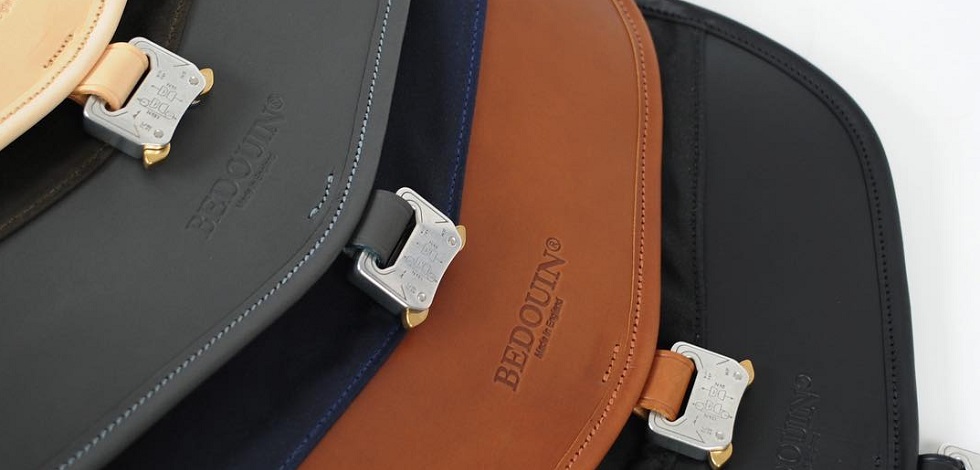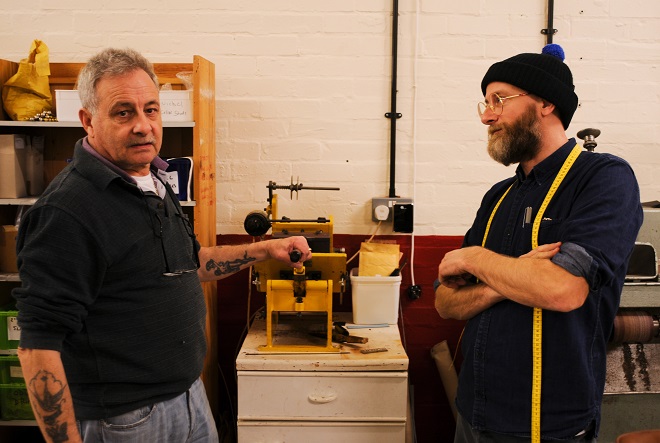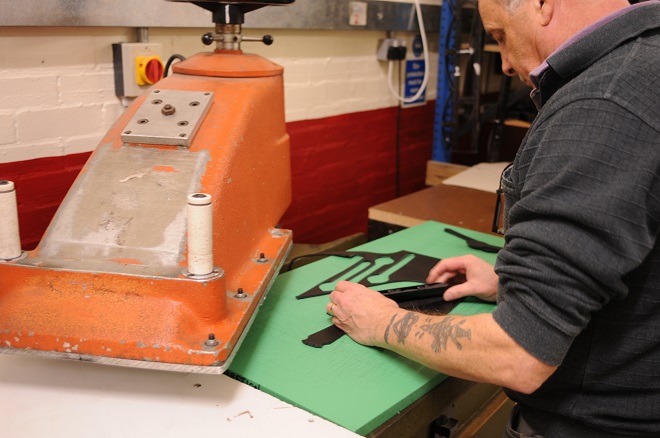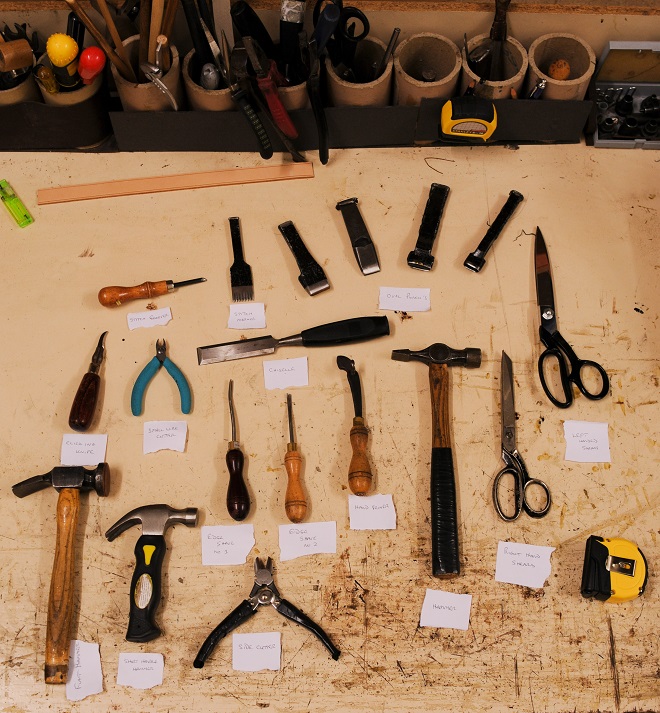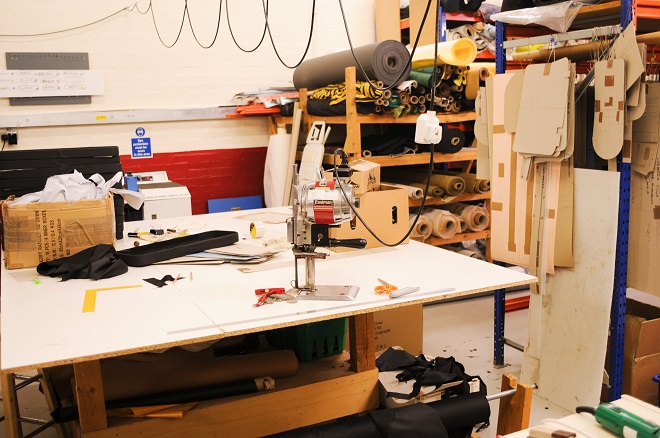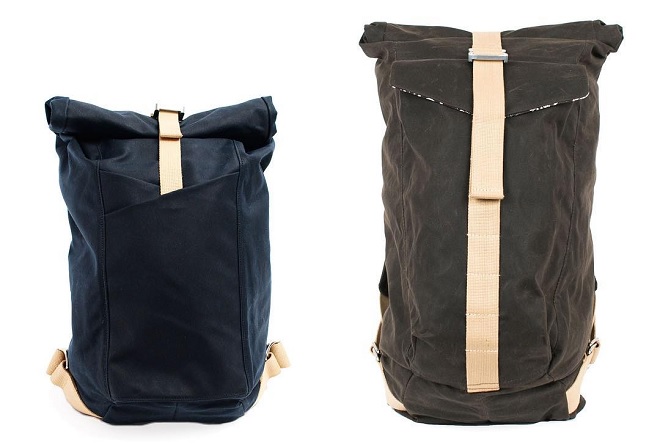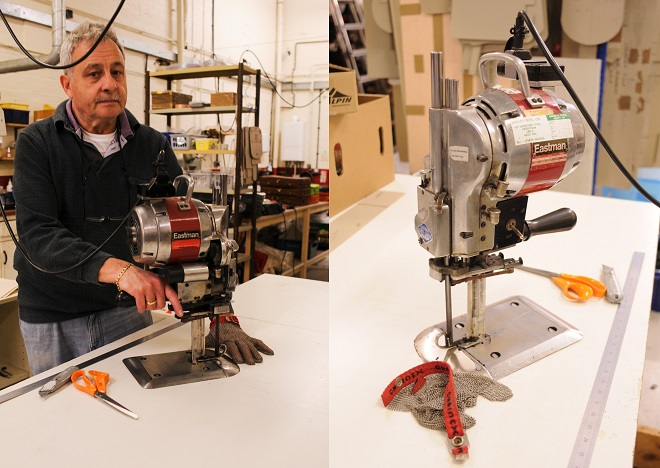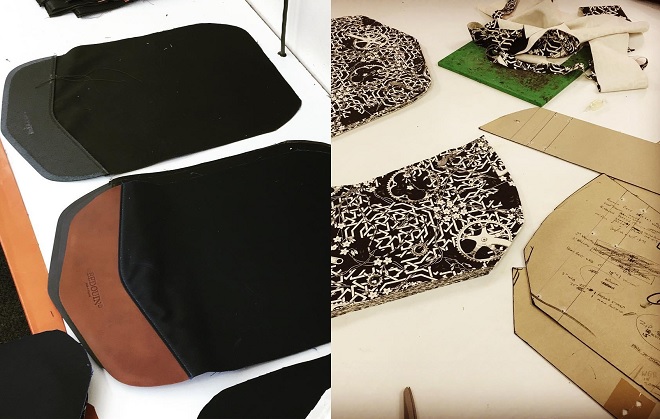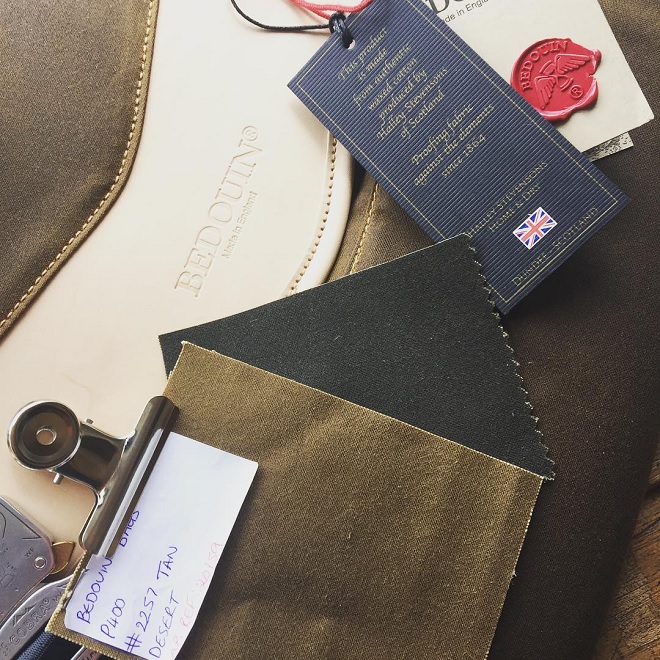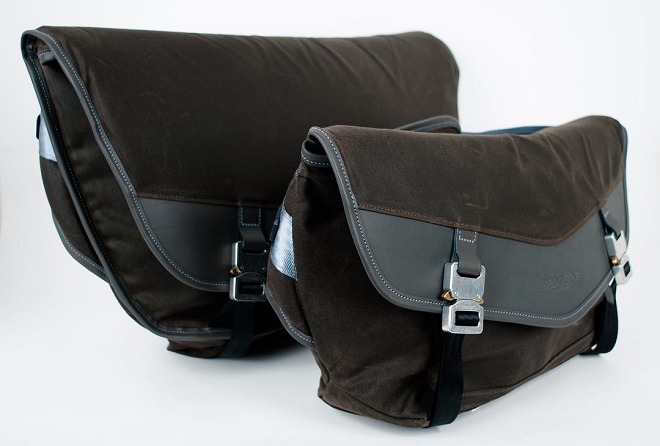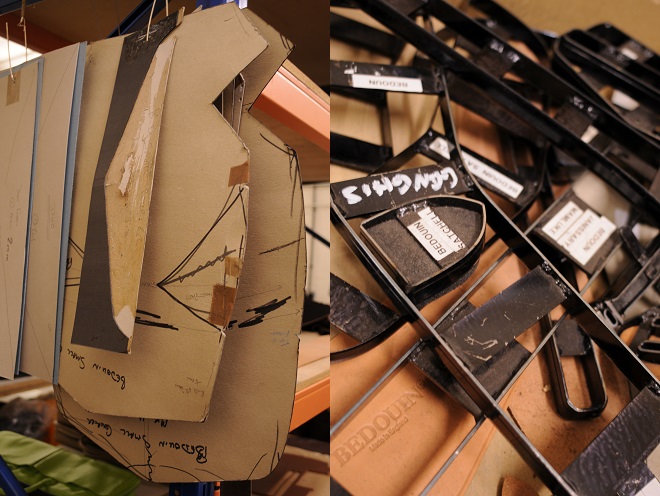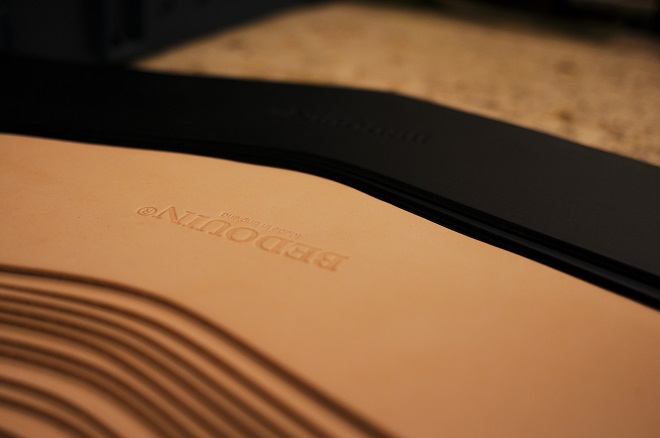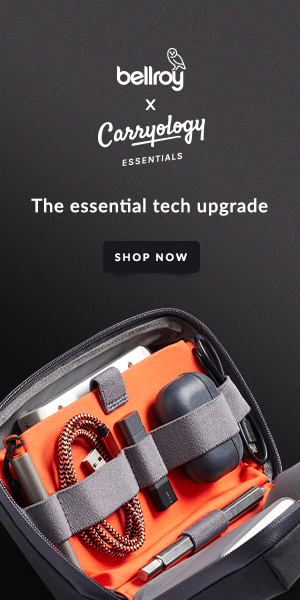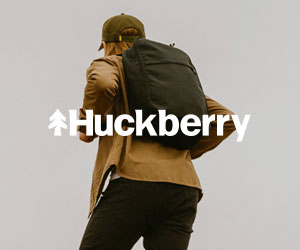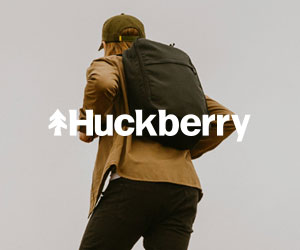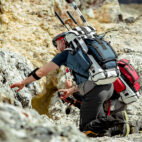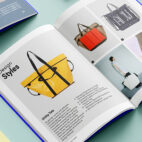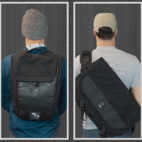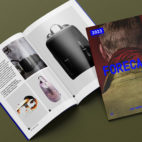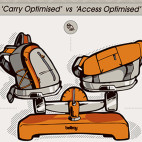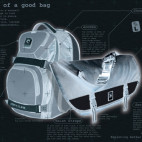Maker Series :: Bedouin Foundry
Bedouin Foundry have been bucking the trend of disposable fashion, bolstering the British craft industry, and doing it all with a little rebel flair since 2009. The English brand is a firm proponent of the “buy quality and buy it once” philosophy, and their carry pieces reflect this. Beautiful, durable and practical, their handmade pieces are built to take a beating, but suave enough to garner covetous glances wherever they roam. To learn more about the brand’s creative process, we asked designer and maker duo Silas Grant and Paul Johnson to share their craft insights…
How does your brand/process speak to the notions of “craft?”
SILAS: Making in Britain was very important for me, our leather and bag making industry has shrunk to a shadow of its former self, so in a small way we hope to contribute to the survival of the skills and craft in Britain.
I wanted Bedouin to be the best quality, have longevity and provenance, and use the best materials and components the UK and Europe had to offer.
After much searching I found Paul and Cynthia, who have a workshop in Lincolnshire; he is a master of his trade and worked at a scale that suited what I wanted to do with Bedouin.
Bedouin is a labour of love, not a money-making machine; I think that is what separates craft from industrial scale manufacturing.
“Making in Britain was very important for me, our leather and bag making industry has shrunk to a shadow of its former self, so in a small way we hope to contribute to the survival of the skills and craft in Britain.”
PAUL: I have been making bags for 24 years in the classic English tradition. There are five of us in the workshop usually. Myself and David do the preparation work and my wife Cynthia and her team do the sewing, and between all of us we do the finishing. Between the five of us we have over 100 years’ experience in the trade.
What are your tools of the trade?
[Click for larger image]
Stitch groover, stitch marker, oval punches, clicking knife, small wire cutter, chisel, left-handed sheers, edge shave, hand vriner, right-handed sheers, flat hammer, short-hand hammer, side cutter.
What spurred you to make stuff? Tell us the story.
SILAS: I come from a design family I guess. Dad was a fashion designer, Mum and my sister were both textile designers. I was always fascinated by 3D, and skateboarding and building ramps in the 80’s and 90’s opened up my horizons and got me thinking about art and design. I then got pushed into Art school by my mum after a period out of work in my late teens. Then what seemed a natural progression into Industrial Design; from that I worked in the Australian Surf industry as an Accessories Designer, then consumer electronics back in London. I then set up Bedouin with an eye to local manufacturing and quality. So I design and make maquettes and rough prototypes; Paul is the craftsman.
“Bedouin is a labour of love, not a money-making machine; I think that is what separates craft from industrial scale manufacturing.”
PAUL: Well, I was out of work, and got a job with a local bag maker. I quickly grew to love it, then Cynthia came to work with us and inspired us to a higher plane of quality. From there we set up our own workshop. I see making bags as my form of art. I can’t draw, I love music but can’t play, but we can make beautiful bags.
What keeps you excited about making stuff?
SILAS: Happy customers, there is satisfaction in seeing people on the street using your bags. Being able to stand next to your products after several years of use with pride is priceless.
PAUL: It’s great when you see your work in the press, being carried by some of the famous celebrities that have purchased them, and when you finish an order there is the satisfaction of a job well done.
“Being able to stand next to your products after several years of use with pride is priceless.”
One handy tip or learning gleaned along your journey?
SILAS: If you are not making it yourself, establish a good trusting relationship with the maker you are working with, and listen to them. Don’t try and force a maker to do something that doesn’t suit their workshop. Many designers have an arrogance towards manufacturers and engineers. This is a mistake. Dieter Rams worked out the engineers at Braun liked brandy, so every Friday he brought a bottle of brandy and got drunk with them. Friendship and respect get the best results.
“If you are not making it yourself, establish a good trusting relationship with the maker you are working with, and listen to them. Don’t try and force a maker to do something that doesn’t suit their workshop.”
PAUL: Take the time to make it properly. Most people don’t because of cost constraints or they are too big an operation to maintain quality. Good quality and attention to detail takes time.
Walk us through your creative process…
SILAS & PAUL: We sketch up ideas and paper models at the studio. We then drive up and spend the day with Paul, getting his input and ideas and then we make a first prototype. We use it and abuse it for a while, ironing out the kinks and making sure it is just right. On complex pieces we do second and third prototypes, testing and collaborating with Paul. Sometimes more – the Barbary must have run to 3 or 4 proto’s! Paul then makes the patterns and has the tooling made, and we do the first production run.
What other makers inspire you?
SILAS: I respect makers deep in their craft. I recently did a luggage project with Emily Willis, a leather craftswoman of exceptional talent. She does a lot of work on refitting classic sports cars; she’s exceptionally skilled. As far as larger scale goes I have an enduring respect for Hermés, they have a level of craftsmanship unmatched at that scale.
PAUL: Some of the traditional British makers that are managing to stay in business, the traditional craftsmen. Peter Smith taught me a thing or two but he’s gone now. And Tanner Krolle, they used to do the most excellent work; not sure what they are like now.
“Take the time to make it properly. Most people don’t because of cost constraints or they are too big an operation to maintain quality. Good quality and attention to detail takes time.”
What’s your all-time favorite BF piece? What keeps filling you with pride?
SILAS: It’s got to be the Barbary. It took such a lot of development, as this was a very new thing for Paul to make. It’s always my go-to bag when I get on my bike, it keeps you warm in the winter and it is bottomless in terms of capacity.
PAUL: I love the Genghis. It looks just right, it’s multifunctional and it ages well.
What lies ahead for the “maker movement?”
SILAS: People seem to be appreciating quality over disposable goods more and more so that can only be a good thing. There are a lot of smaller makers here in Britain, so I hope that can help to rebuild the industry.
PAUL: I’m pretty worried about Brexit and the effect that will have. Most of the big British brands went offshore in the past 20 years and a lot of workshops like mine closed down. This seriously diluted the bag manufacturing skill base in Britain, and it’s hard to get that back.





 Carry Awards
Carry Awards Insights
Insights Liking
Liking Projects
Projects Interviews
Interviews
